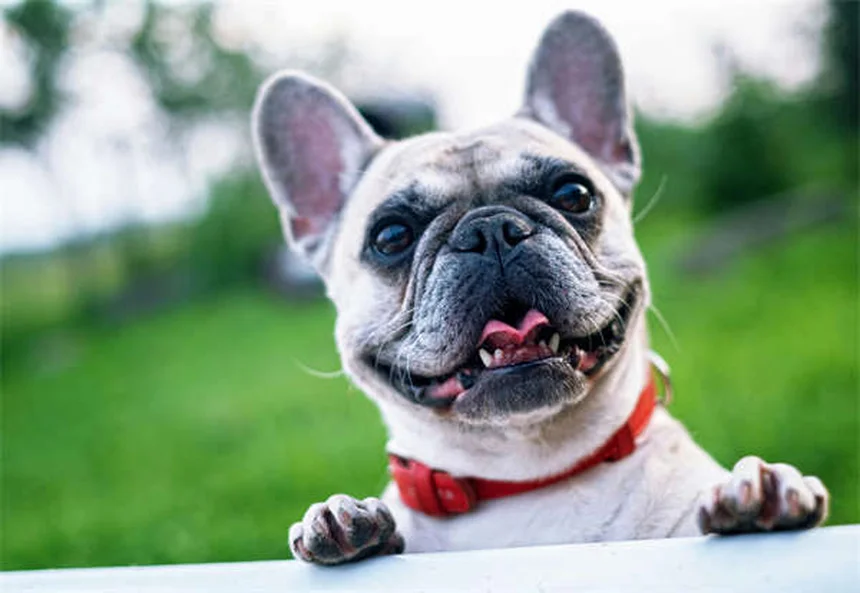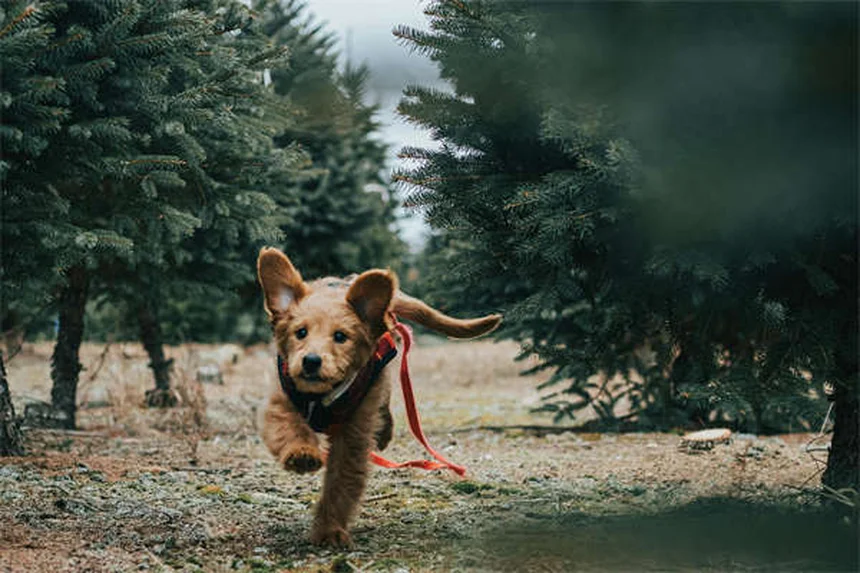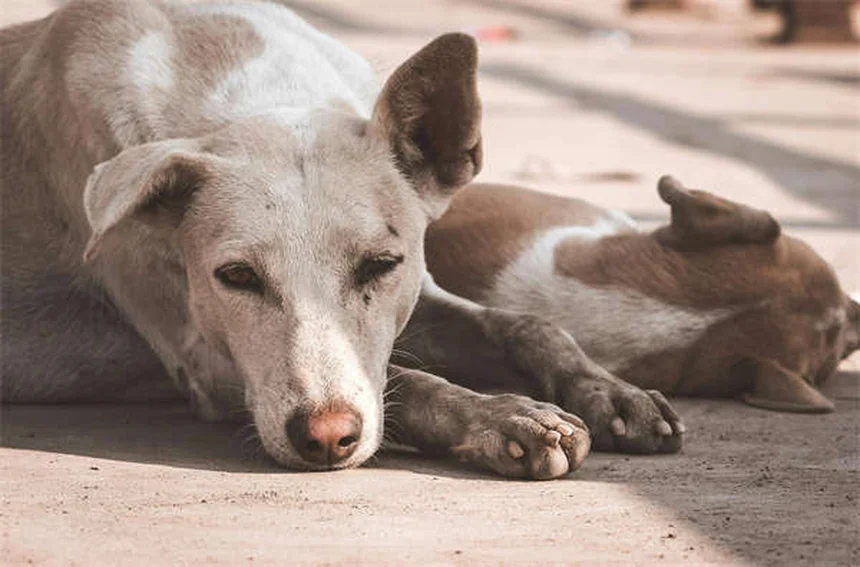What are retained dental caps in horses? The answer is simple: they're stubborn baby teeth that refuse to fall out when permanent teeth are coming in. Between ages 1 and 4, your horse should naturally shed these deciduous teeth, but when they don't, we call them retained caps. I've seen this issue countless times in my practice, and let me tell you - it's more common than most horse owners realize!These pesky caps can cause serious problems if left untreated. Imagine trying to eat with a loose tooth - that's what your horse experiences! The good news? With proper veterinary care, this condition is usually easy to fix. In this guide, we'll walk you through everything you need to know about identifying, treating, and managing retained dental caps in your horse.
E.g. :Pyometra in Rabbits: 5 Warning Signs Every Owner Should Know
Advertisement
- 1、Understanding Retained Dental Caps in Horses
- 2、Diagnosing Retained Caps
- 3、Treatment Options
- 4、Prevention and Management
- 5、Common Questions Answered
- 6、The Hidden Costs of Ignoring Dental Issues
- 7、Beyond the Basics: Advanced Dental Care
- 8、When to Worry About Baby Teeth
- 9、Owner Experiences That Might Surprise You
- 10、Practical Tips for Every Horse Owner
- 11、FAQs
Understanding Retained Dental Caps in Horses
What Are Retained Dental Caps?
Between ages 1 and 4, your horse's permanent teeth start growing in. But here's the catch – those baby teeth (we call them deciduous teeth) need to fall out first. When they don't, they become what we call retained caps, sitting stubbornly on top of the new teeth trying to come through.
Imagine trying to build a house on top of an old foundation that won't budge – that's what's happening in your horse's mouth! These retained caps can cause all sorts of trouble, from crooked permanent teeth to uneven chewing surfaces. Some horses even end up with permanent teeth that can't erupt properly because of these pesky caps.
Spotting the Problem Early
Your horse might show obvious signs like:
- Taking forever to finish meals
- Dropping half-chewed food (we call this quidding)
- Acting grumpy when you try to bridle them
But here's something interesting – sometimes there are no signs at all! I've seen cases where we discover retained caps during routine dental checks on horses that seemed perfectly fine. That's why regular check-ups are so important.
Diagnosing Retained Caps
 Photos provided by pixabay
Photos provided by pixabay
The Vet's Examination Process
When you bring your horse in for a dental check, your vet will do a thorough mouth inspection. They're looking for:
| Normal Teeth | Teeth with Retained Caps |
|---|---|
| Even tooth alignment | Visible misalignment |
| Smooth chewing surfaces | Uneven wear patterns |
| No inflammation | Possible gum soreness |
Did you know that sometimes the cap is so well-hidden that even vets might miss it at first glance? That's why we often use special dental tools to feel for abnormalities that aren't immediately visible.
When to Call the Professionals
If your normally good eater suddenly becomes picky or starts making funny chewing motions, don't wait! The sooner we catch these retained caps, the easier they are to fix. I always tell my clients – it's much better to spend money on preventive care than dealing with complicated dental issues later.
Treatment Options
The Removal Process
Here's the good news – treating retained caps is usually straightforward. We use special dental forceps to gently remove the cap. Most horses handle this procedure well with some light sedation.
Think of it like pulling a loose baby tooth – except we're dealing with a 1,000-pound patient! That's why we use a mouth speculum to keep their mouth open safely during the procedure.
 Photos provided by pixabay
Photos provided by pixabay
The Vet's Examination Process
Your horse might be a bit sore for a day or two after the procedure. Wouldn't you be if someone just yanked out one of your teeth? But most horses bounce back quickly – I've seen many start eating normally within hours!
Here's a pro tip: offer softer food for the first day or two. Soaking hay or adding some moistened beet pulp can make chewing more comfortable while their mouth heals.
Prevention and Management
Can You Prevent Retained Caps?
Here's the honest truth – there's no surefire way to prevent retained caps. It's just one of those things that happens sometimes with growing horses. But that doesn't mean you're powerless!
Regular dental checks are your best defense. I recommend young horses get their teeth checked every 6 months. It's like taking your kid to the dentist – catching problems early saves a lot of trouble later.
Long-Term Dental Health
After dealing with retained caps, your horse's permanent teeth should grow in normally. But don't get complacent! Dental care is an ongoing process. Here's what I suggest:
- Annual dental exams (twice yearly for young horses)
- Watch for changes in eating habits
- Keep an eye on bit acceptance during riding
Remember that joke about the horse who walked into a bar? The bartender asked, "Why the long face?" The horse replied, "I've got dental problems!" Okay, maybe it's not that funny, but it makes a good point – dental health affects your horse's comfort and performance more than you might realize.
Common Questions Answered
 Photos provided by pixabay
Photos provided by pixabay
The Vet's Examination Process
Here's something many owners wonder: "Does this actually hurt my horse?" The answer is – it depends. Some horses show obvious discomfort, while others seem unfazed. But think about it – would you want to chew food with a loose tooth in your mouth? Probably not!
The discomfort usually comes from the abnormal pressure on the gums and surrounding teeth. Once we remove the cap, most horses show immediate improvement in their comfort level.
What If I Don't Treat It?
This is a question I hear a lot: "What's the worst that could happen if I just leave it?" Well, let me tell you – untreated retained caps can lead to:
- Permanent misalignment of adult teeth
- Painful chewing leading to weight loss
- Increased risk of dental infections
The bottom line? It's always better to address dental issues sooner rather than later. Your horse will thank you – maybe not in words, but through better eating habits and improved performance!
The Hidden Costs of Ignoring Dental Issues
Financial Impact of Delayed Treatment
You might think skipping that dental check saves money, but let me tell you - it's like ignoring a check engine light in your car. A simple cap removal might cost $100-300, but wait until that turns into an impacted tooth needing surgical extraction! Now we're talking $800-1,500.
I've seen cases where owners put off treatment, only to face emergency vet bills when their horse stops eating completely. One client saved $200 by delaying, then spent $1,200 fixing the resulting complications. That's not smart budgeting - that's being penny wise and pound foolish!
Performance Consequences You Can't Ignore
Ever wonder why your dressage horse suddenly resists collection? Or why your barrel racer isn't turning as sharply? Dental pain affects performance more than most riders realize. A study of 200 competition horses found that 62% showed measurable improvement in performance after dental treatment.
Here's a quick comparison of common performance issues linked to dental problems:
| Discipline | Common Dental-Related Issue | Percentage Affected |
|---|---|---|
| Dressage | Resistance to collection | 45% |
| Jumping | Refusal at fences | 38% |
| Racing | Poor finishing speed | 52% |
Beyond the Basics: Advanced Dental Care
Modern Diagnostic Tools Changing the Game
Gone are the days when vets just poked around with a flashlight! Now we've got digital dental radiography showing us problems we couldn't see before. One practice found retained caps in 28% of "normal" young horses during routine scans - cases they would've missed with just a visual exam.
These high-tech tools aren't just for fancy clinics anymore. Many mobile equine dentists now carry portable units. The images are so clear you can actually see the permanent tooth trying to push up under the retained cap. It's like having X-ray vision for your horse's mouth!
Nutritional Support for Dental Health
What if I told you your horse's hay could help prevent dental issues? Coarse, stalky hay actually promotes better tooth wear than soft grass hay. The abrasive action helps wear down teeth naturally and may encourage caps to shed at the right time.
Here's a tip from my own barn: I mix in some oat hay with my young horses' regular forage. The coarse stems give their teeth a good workout while providing great nutrition. Just don't overdo it - we want natural wear, not excessive abrasion!
When to Worry About Baby Teeth
The Timeline You Need to Know
Most owners know horses lose baby teeth, but do you know when to expect it? Here's the breakdown:
- Incisors: 2.5-4 years
- Canines: 4-5 years
- Premolars: 2.5-4 years
But here's the kicker - about 15% of horses don't follow this schedule perfectly. That's why I tell clients: "Know the rules, but watch your individual horse." One of my patients didn't shed his last caps until age 5 but had perfect teeth afterward!
Genetic Factors You Can't Control
Ever notice how some bloodlines seem prone to dental issues? Research shows certain breeds and lineages have higher rates of retained caps. Arabians and Warmbloods tend toward the higher end, while Quarter Horses generally have fewer problems.
Does this mean you should avoid these breeds? Absolutely not! But it does mean you should be extra vigilant about dental checks if you own one. Forewarned is forearmed, as they say.
Owner Experiences That Might Surprise You
The "Miracle Recovery" Stories
Remember that question about whether treatment makes a difference? Let me share a case that still amazes me. A 3-year-old Thoroughbred came in barely maintaining weight despite excellent care. After we removed three retained caps, he gained 75 pounds in six weeks!
His owner cried when she saw the difference - not just in weight, but in his whole demeanor. "It's like I got my real horse back," she said. Stories like this remind me why dental care matters so much.
The "I Had No Idea" Moments
One of my favorite client reactions is when they realize how much discomfort their horse was hiding. A competitive reiner once told me: "I thought he was being stubborn about lead changes. Turns out he just had a sore mouth!"
This happens more than you'd think. Horses are masters at hiding pain - it's a survival instinct. That's why we need to be their advocates, watching for subtle signs something's wrong.
Practical Tips for Every Horse Owner
DIY Checks Between Vet Visits
While only your vet should diagnose and treat dental issues, you can spot potential problems early. Monthly, lift your horse's lips and look for:
- Broken or discolored teeth
- Swollen gums
- Food packed between teeth
Smell your horse's breath too - foul odor often signals dental trouble. Just don't take it personally if your horse thinks you're weird for sniffing his mouth!
Choosing the Right Dental Professional
Not all equine dentists are created equal. Look for someone who:
- Uses proper sedation protocols
- Has up-to-date equipment
- Explains findings clearly
Ask fellow horse owners for recommendations too. A good dentist will have clients who rave about their work. And trust me, when you find a great one, you'll want to keep their number on speed dial!
E.g. :Retained Dental Cap in Horses | PetMD
FAQs
Q: How can I tell if my horse has retained dental caps?
A: Look for these telltale signs: difficulty chewing, dropping food (quidding), or sudden resistance to the bit. Some horses may eat slower than usual or favor one side of their mouth. But here's something important - sometimes there are no obvious symptoms at all! That's why I always recommend regular dental check-ups, especially for young horses. During exams, we often find retained caps in horses whose owners thought everything was fine. If you notice any changes in your horse's eating habits or behavior, it's worth scheduling a dental exam.
Q: What happens if retained caps aren't treated?
A: Untreated retained caps can lead to serious dental issues down the road. The permanent teeth may grow in crooked, causing uneven wear patterns that affect your horse's ability to chew properly. I've seen cases where this led to weight loss and nutritional problems. In severe situations, the permanent tooth might not erupt at all! The good news? When we catch these early (ideally before age 5), we can usually prevent long-term damage. That's why I'm such a big advocate for preventive dental care - it saves you money and keeps your horse comfortable in the long run.
Q: Is removing retained caps painful for my horse?
A: Here's the honest truth - while no one enjoys having teeth worked on, the procedure is typically much less painful than living with the problem. We use light sedation and specialized tools to make the process as comfortable as possible. Most horses bounce back quickly - often eating normally within hours! Think of it like pulling a loose baby tooth - there might be some temporary soreness, but the relief is immediate. I always tell my clients: "Your horse might be a little grumpy with me today, but they'll thank you tomorrow!"
Q: How often should young horses get dental check-ups?
A: For horses aged 1-5 years, I recommend biannual dental exams. This is the prime time when permanent teeth are coming in and retained cap issues typically appear. After age 5, annual check-ups are usually sufficient unless problems arise. Remember - horses can't tell us when their mouth hurts, so regular preventive care is crucial. I've saved countless owners from expensive dental corrections just by catching issues early during routine exams!
Q: Can I prevent my horse from getting retained caps?
A: While there's no guaranteed way to prevent retained caps (they're mostly just bad luck), regular dental care is your best defense. Proper nutrition and early detection are key. Some equine dentists recommend gentle dental floats during the teething years to help guide permanent teeth into place. The most important thing? Don't skip those routine check-ups! As the saying goes in our field: "An ounce of prevention is worth a pound of cure" - especially when it comes to your horse's dental health.
